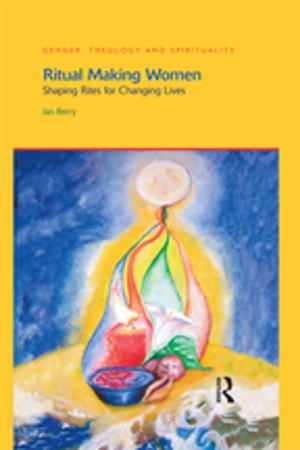Art and the Transitional Object in Vernon Lee's Supernatural Tales
Fiction & Literature, Literary Theory & Criticism| Author: | Patricia Pulham | ISBN: | 9781351957106 |
| Publisher: | Taylor and Francis | Publication: | March 2, 2017 |
| Imprint: | Routledge | Language: | English |
| Author: | Patricia Pulham |
| ISBN: | 9781351957106 |
| Publisher: | Taylor and Francis |
| Publication: | March 2, 2017 |
| Imprint: | Routledge |
| Language: | English |
In her persuasively argued study, Patricia Pulham astutely combines psychoanalytic theory with socio-historical criticism to examine a selection of fantastic tales by the female aesthete and intellectual Vernon Lee (Violet Paget, 1856-1935). Lee's own definition of the supernatural in the preface to Hauntings questions the nature of the 'genuine ghost', and argues that this figure is not found in the Society of Psychical Research but in our own psyches, where it functions as a mediator between past and present. Using D.W. Winnicott's 'transitional object' theory, which maintains that adults transfer their childhood engagement with toys to art and cultural artifacts, Pulham argues that the prevalence of the past in Lee's tales signifies not only an historical but a psychic past. Thus the 'ghosts' that haunt Lee's supernatural fiction, as well as her aesthetic, psychological, and historical writings, held complex meanings for her that were fundamental to her intellectual development and allowed her to explore alternative identities that permit the expression of transgressive sexualities.
In her persuasively argued study, Patricia Pulham astutely combines psychoanalytic theory with socio-historical criticism to examine a selection of fantastic tales by the female aesthete and intellectual Vernon Lee (Violet Paget, 1856-1935). Lee's own definition of the supernatural in the preface to Hauntings questions the nature of the 'genuine ghost', and argues that this figure is not found in the Society of Psychical Research but in our own psyches, where it functions as a mediator between past and present. Using D.W. Winnicott's 'transitional object' theory, which maintains that adults transfer their childhood engagement with toys to art and cultural artifacts, Pulham argues that the prevalence of the past in Lee's tales signifies not only an historical but a psychic past. Thus the 'ghosts' that haunt Lee's supernatural fiction, as well as her aesthetic, psychological, and historical writings, held complex meanings for her that were fundamental to her intellectual development and allowed her to explore alternative identities that permit the expression of transgressive sexualities.















